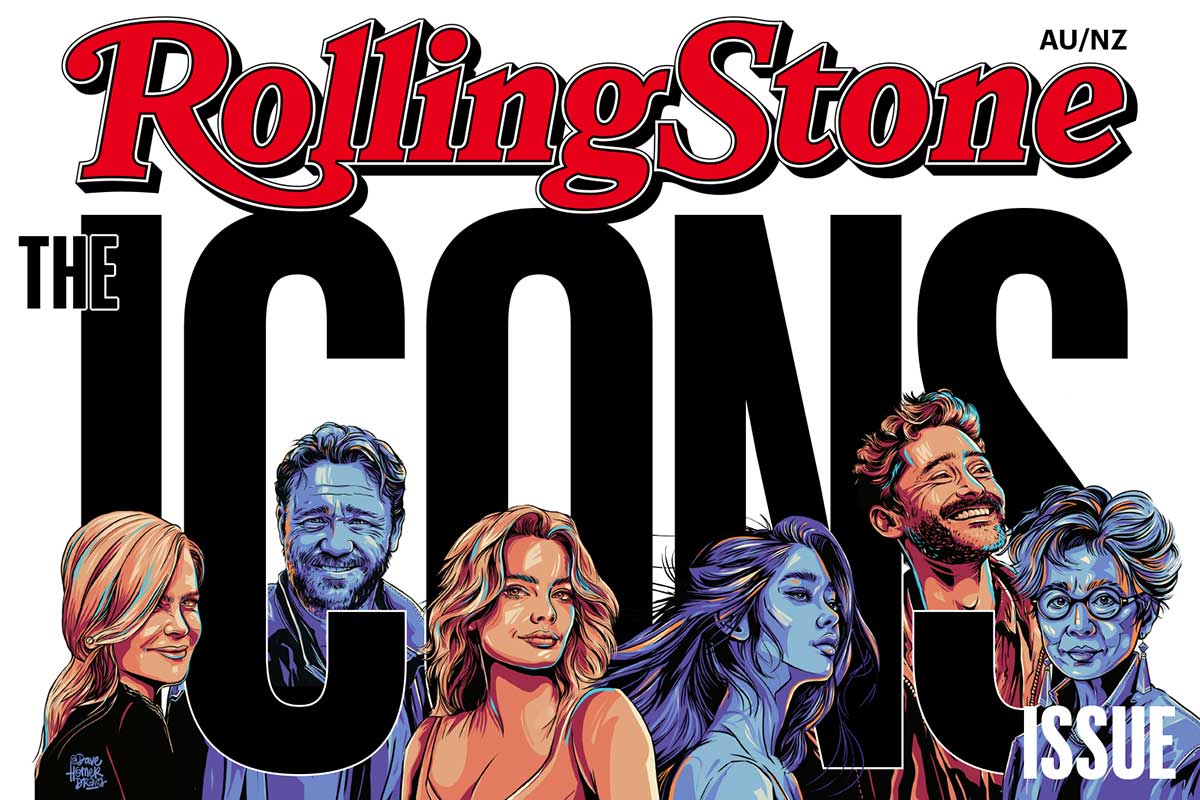Rolling Stone’s Icons Issue: An Antipodean Odyssey
What makes a celebrity an icon? It’s not just talent; it’s a magnetic charisma, enduring influence, and that unmistakable Antipodean spirit that sets them apart. In this exclusive collector’s edition of Rolling Stone AU/NZ, we embark on a journey across the Southern Hemisphere to unveil the 50 most iconic stars of Australia and Aotearoa.
In the realm of music, we delve deep into the anthems that have resonated with Aussies and Kiwis for generations. From a rock god who’s electrified stages to a pop princess who’s touched our hearts, we explore the artists who’ve woven themselves into the fabric of our unique pop culture — a culture that continues to cross borders.
The silver screen has its own share of luminaries, those who’ve left an indelible mark on our screens, and in many cases, around the world. We celebrate the actors who’ve made us laugh, cry, and question, as well as those whose career-defining performances have become timeless classics.
And let’s not forget the comedians who’ve had us in stitches, revealing a unique and homebrewed brand of humour, reflective of our local sensibilities. Their laughter echoes through the comedy clubs and airwaves, connecting us all in shared hilarity.
These names of these 50 icons are etched into the cultural history books — here and abroad — and continue to inspire the next generation of icons.

Rose
By: Sosefina Fuamoli
At just 26 years of age, Roseanne Park aka Rosé is one of the world’s most recognisable faces.
The Aotearoa-born, Melbourne-raised, Korean singer and dancer has been at the forefront of a wave of K-Pop fandom as a member of the girl group BLACKPINK. As the main vocalist and lead dancer of the group since their formation in 2016, she has already ensured a lifetime’s worth of fame and notoriety.
Being a K-Pop idol would be overwhelming for many young performers (Rosé was only 15 when she signed a development deal with YG Entertainment), but as BLACKPINK have proven, they know how to navigate the game. Rosé’s career has been a success story of K-Pop excellence crossing into the Western mainstream. The foursome first stirred momentum with the release of double A-side ‘single albums’ Square One and Square Two in 2016, before dominating global charts with studio records The Album (2020) and Born Pink (2022), with both reaching the Top Three in most of the major global music markets.
In between BLACKPINK records, Rosé began to chart her solo trajectory, releasing her debut two-track ‘single album’ album, R, in 2021. Her solid pop vocals and natural confidence as a performer permeates the material and unsurprisingly, lead single On The Ground became the first song by a Korean solo artist to reach Number One on the Billboard Global chart. At a glance, the two racks (On The Ground and Gone), are hovering around one billion streams each.
Not only one of K-Pop’s most iconic idols, Rosé is a cultural icon with universal appeal — as sought after a name in the fashion world as she is in music. The first global ambassador for Yves Saint Laurent in fifty-nine years, Rosé’s following in different lanes has cemented her global sphere of influence. With over seventy-five million followers and two Guinness World Records to her name, Rosé is a mononym that packs the weight of superstars many years her senior, after less than a decade in the game.
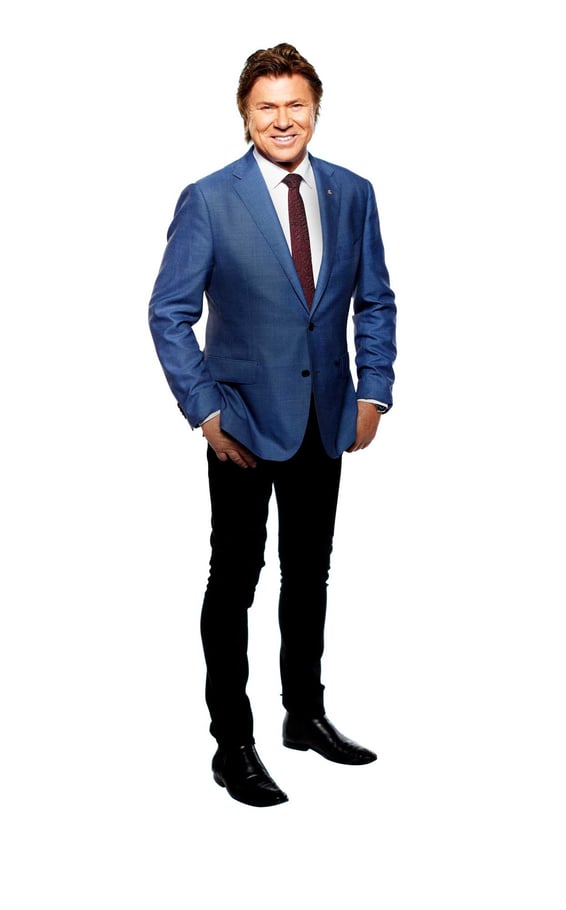
Richard Wilkins
By: Poppy Reid
While Richard Wilkins AM — Dickie as he’s fondly known — has had a long and remarkably successful career, we almost lost Australia’s most treasured entertainment reporter to the red white and blue land of opportunity.
Following his move from Aotearoa to Australia in 1980 with his short-lived band Wilde and Reckless (who toured with Grace Jones and supported an emerging INXS), the multi-award winner landed his big break in 1987. As the host of MTV Australia, Wilkins became our living room mainstay, beaming into homes nationwide and sharing his eclectic music taste as we watched on religiously. Famously, Wilkins auditioned for the coveted MTV hosting gig alongside longtime friend and fellow Rolling Stone Icon, Russell Crowe.
Wilkins’ on-camera swagger and his penchant for meaningful connections with some of the world’s biggest celebrities inspired MTV to offer him a Stateside gig. Wilkins turned down the opportunity to relocate to the US for two reasons: his family and his love for the Australian industry.
Having been Channel Nine’s Entertainment Editor for three decades and counting, Wilkins is one of Australia's most recognised personalities. A fierce advocate in the Noughties for promoting live music on mainstream TV, and a safe space for big-name acts like Madonna, Paul McCartney and Bruce Springsteen to reveal a global exclusive, his interview style and critical acclaim effortlessly ascends the epithets of entertainment journalism, placing him among the few and far between.
When Michael Hutchence passed in 1997, INXS asked Wilkins to give the eulogy. The televised funeral saw Wilkins reflect on Hutchence’s tragic death, and the relationship fans shared with one of Australia’s most successful music exports.
Wilkins’ late father gave him the sage advice that has cemented his place as one of our most sought-after entertainment reporters: “Bite off as much as you can, and chew like hell”.
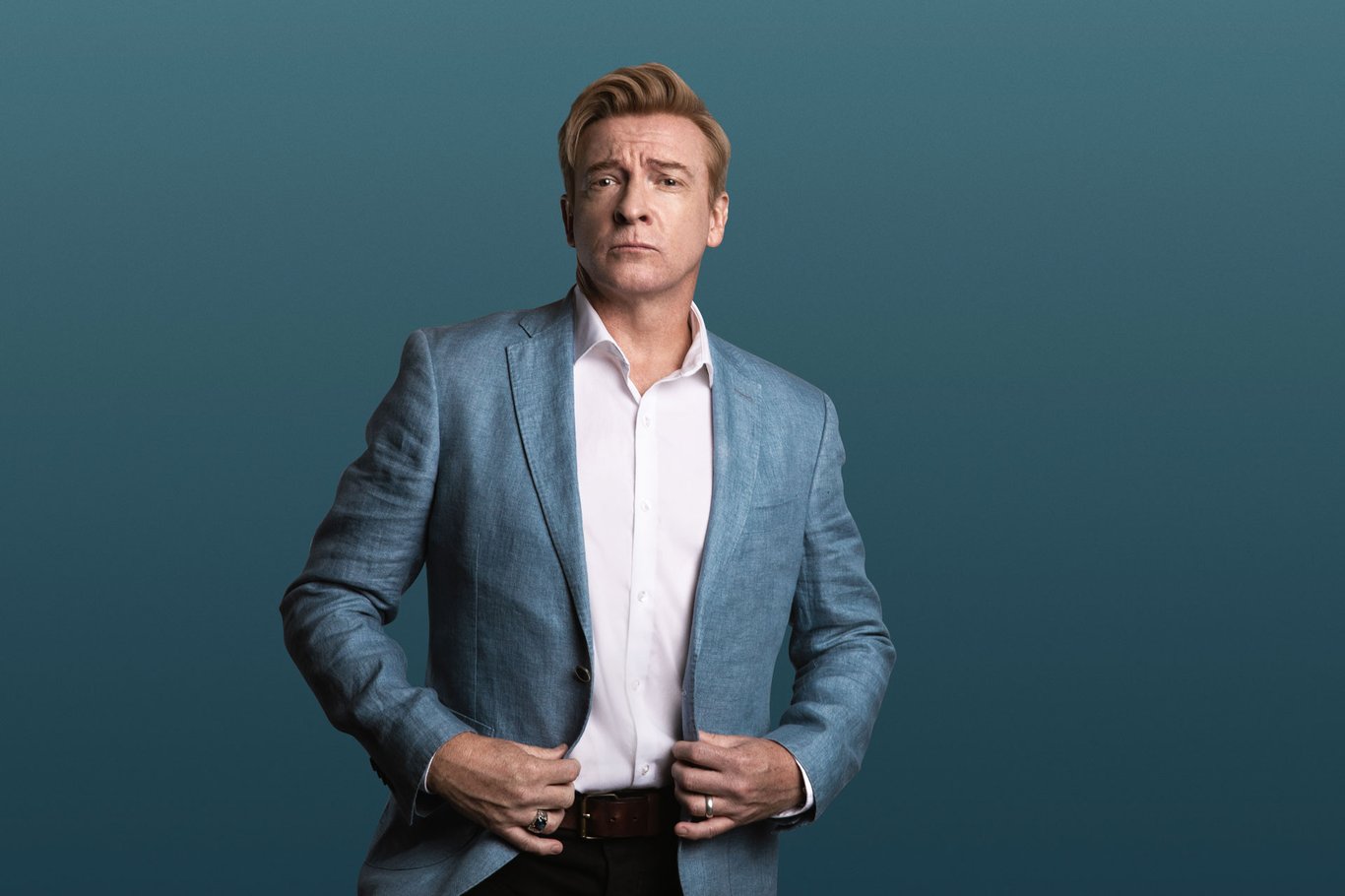
Rhys Darby
By: Fiona Connor
When Rhys Darby delivers one of his signature punchlines, it's packed with wit, enthusiasm and an authentic edge.
His work has seen him soar to become one of New Zealand's greatest comedic exports. He effortlessly reinforced the notion that international success is possible from even the furthest corners of the globe after breaking into Hollywood with his feature film debut as Norman in Jim Carrey's Yes Man, quickly followed by a role in The Boat That Rocked, putting him in excellent company alongside Nick Frost and Philip Seymour Hoffman.
His stand-up shows nail the right mix of imaginative and intellectual, incorporating sound effects and character play to explore wide-reaching topics and relatable scenarios. Darby didn't start out in comedy — it was only after a stint in the New Zealand Army he discovered his passion for comedy while at university in Christchurch. Though he'd once had ideas about becoming a journalist, he fell in love with performance as a part of the uni comedy club where he realised his ability to make people laugh. He was inspired by UK shows like Blackadder and Dad's Army, harnessing the ability to take awkwardness and absurdity to create comedy gold. As the hilarious Murray on Flight of the Conchords, he left his mark on the world with his co-stars Jemaine Clement and Bret McKenzie. He's performed in every major comedy festival, from the Edinburgh Fringe Festival to Montreal's Just For Laughs. Now based in Los Angeles, he's continued to make an impact with his own eight-part mockumentary comedy series for Netflix, Short Poppies, and his talent for voice work has led to him being heard in animated films like Trolls and Teen Titans Go.

Rebel Wilson
By: Paul F. Verhoeven
When Rebel Wilson was working as a youth ambassador in South Africa, she contracted malaria.
Gripped by a terrible fever, she hallucinated, seized by a vision of herself winning an Oscar. When the fever cleared, she knew what she wanted to do: become an actress. And, presumably, never contract malaria again.
Rebel has always taken her craft seriously. Studying at the Australian Theatre for Young People, landing a Nicole Kidman-funded scholarship in New York, then to Second City, and on to the Sydney Theatre Company. And all of her training paid off: her roles on Fat Pizza, The Wedge and Bogan Pride are sublimely stupid, but celebrate and explore a facet of Australian culture which is often ignored. She swiftly became a baroness of artisanal dagginess, and the world ate it up.
Leapfrogging to Hollywood, she auditioned for Melissa McCarthy’s role in Bridesmaids. She didn’t get it (she’d have done an incredible job), but the filmmakers liked her so much that they wrote in a character for her, casting her as Kristen Wiig’s utterly surreal roommate opposite Little Britain’s Matt Lucas. And, because Wilson is incredibly likeable and good things do sometimes happen to good people, she and Lucas went on to become roommates in real life.
From there, she went on to absolutely nail a slew of big screen roles. She received widespread critical acclaim for her turn as Fat Amy in the Pitch Perfect films. She played Robin Peck in Michael Bay’s bombastic Pain & Gain. She carried out an acting masterclass as Fraulein Rahm in Taika Waititi’s Jojo Rabbit. Every role seems tailor-made for her.
But in 2019’s Isn’t It Romantic, she played a woman who woke up in a romantic comedy — finding herself in a magical world where she was loved, desired, yearned for, appreciated. And given Rebel’s astounding career, and her recent engagement, we suspect this might have been her most realistic role to date.
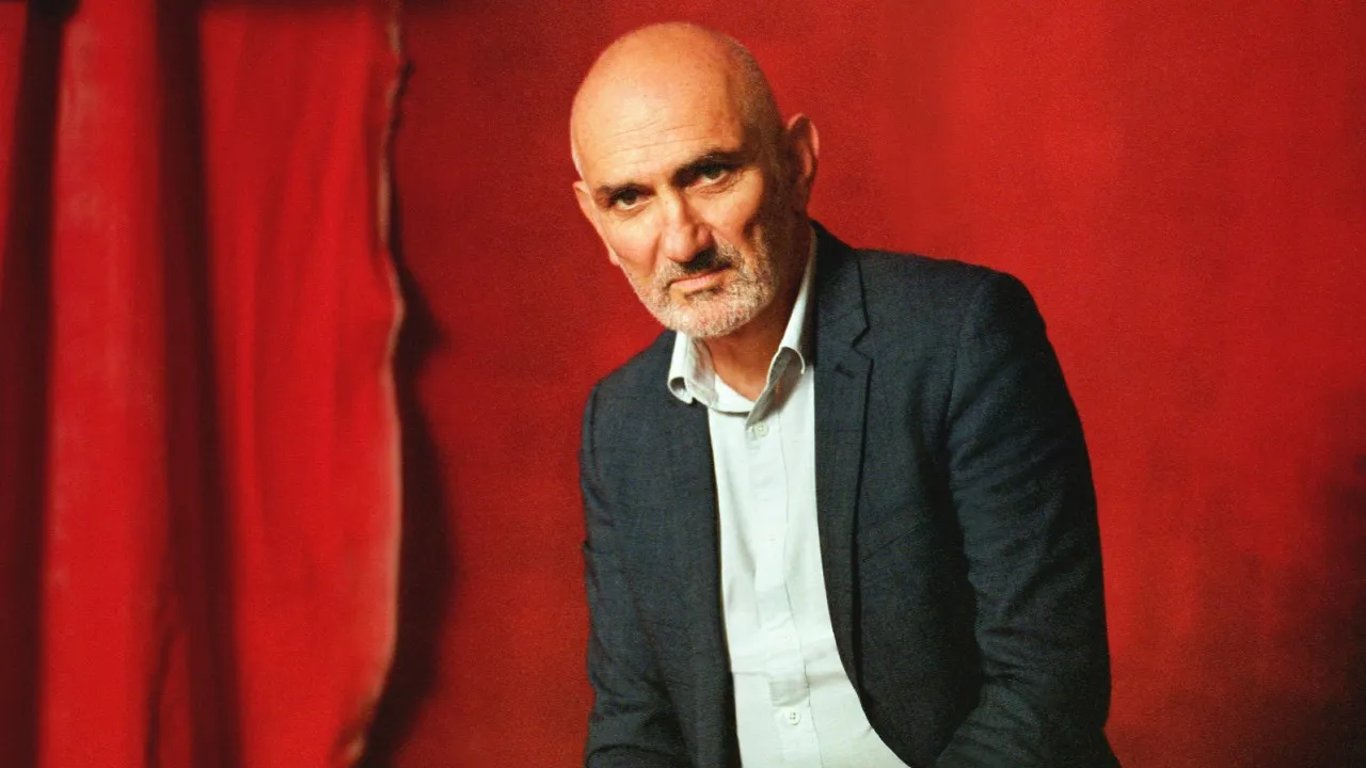
Paul Kelly
By: Sosefina Fuamoli
Paul Kelly’s brand of storytelling has remained uncompromising and fierce, emotional intelligence threaded throughout each tale.
Call him a troubadour, call him Australia’s answer to Bob Dylan, whatever you ascribe to the songwriter it’s likely going to be a label layered with reverence.
A career that has seen his influences, lyrically and sonically, diversify over the decades, Kelly has a distinguished legacy that is integral to the blueprint of impactful Australian music. Whether it’s the broadened sonic scope of an album like Gossip, the timeless sounds of Comedy or Under The Sun, or the modern classics including Life Is Fine and Nature, Paul Kelly’s music has spoken to an ever-evolving social consciousness; music that has reflected a changing and developing Australiana.
Kelly’s refusal to bend to industry trends, a refusal to sacrifice any sense of individualism or control over his image or artistic vision, is what has ensured his legacy — and it’s why so many fans fell for his sound, and his personal stances. Whether it be social, creative or political, Paul Kelly’s viewpoints have remained confident, and through this it has been easy to find relatability in his stories and songs.
You don’t need to know the ins and outs of the genesis of a song like “Dumb Things” or “Before Too Long”; you don’t need to remember where you were when you first heard “To Her Door”, or “Darling It Hurts”. Chances are, these are the sorts of songs that have been embedded in your consciousness at some point in your lifetime. If you grew up with this music in real time, then count yourself lucky to have been there as a unique fusion of sound and influences were born into a climate hungry for change.

Paul Hogan
By: Lars Brandle
Great performers can turn the world into their stage.
Paul Hogan used the Sydney Harbour Bridge as his launch pad.
Proving that you can make it from anywhere, Hoges, as he’s affectionately known, started out as a rigger on the famous bridge, and went on to write and star in Crocodile Dundee, Australia’s top grossing film of all time.
Legend has it, Hoges kept his Harbour Bridge colleagues entertained through the day with his cheeky gags and characters. His friends insisted he take his talents to TV’s New Faces and a star was born. From 1973 to 1984, Hoges was the star of The Paul Hogan Show. For twelve seasons and sixty episodes, Hoges gave Australia his comedic collection of numbskulls and morons, from the dumb-dumb daredevil stuntman Leon Wanker and Aussie everyman Super Dag.
Hoges and his friend John Cornell, who appeared in the show as the dim-witted Strop, had the silver screen on their minds. The first in a trilogy of films, Crocodile Dundee arrived at cinemas in 1986, and was a global hit. Hoges’ character Mick "Crocodile" Dundee taught Americans what a real knife looked like, and shone a spotlight on Kakadu. Hoges was nominated for the Academy Award for Best Original Screenplay and won the Golden Globe award for Best Actor — Motion Picture Musical or Comedy.
Today, it’s recognised as the number one box office hit from these parts. But its enduring impact, and the outback Aussie-male stereotype he created, aren’t so easy to measure. Just two years earlier, Hoges starred in a campaign promoting Australia to international travellers, in which he offered to “slip an extra shrimp on the barbie.” Thanks to those ads and Crocodile Dundee, Hoges was the face of Australia — for the rest of the world looking in.
Hogan tried, but was never able to replicate the success of the first Crocodile Dundee. Almost An Angel, directed by Cornwell and starring Hogan’s then-wife and Dundee co-star Linda Kozlowski, followed in 1990. For 1994’s western comedy Lightning Jack, Hogan created a company, Lightning Ridge Ltd, which he then floated on the Australian Stock Exchange to help fund the film. It wasn’t a hit.
Hoges’ reputation was tarnished in a years-long dispute with the Australian Taxation Office, which alleged he owed $150 million in unpaid tax, penalties and interest. Hogan, in his own inimitable style, stated that the Tax Commissioner was a "boofhead" and that it was "complete crap" that he had paid to settle with the ATO.
The eighty-three-year-old appeared on our screens for the 2017 two-part Australian Story on the ABC, and was the subject of a 2022 “roast” on Channel 7.

Nicole Kidman
By: Lars Brandle
From a BMX Bandit and a Bop Girl to the A-list, Nicole Kidman’s on-screen career has been nothing short of remarkable.
Born in Hawaii and raised in Sydney, Kidman has reached the pinnacle of Hollywood, and stayed there, playing goodies, baddies, femme fatales and damsels — never shying away from different roles or shoots. She helmed Eyes Wide Shut with her then-husband Tom Cruise, the final film by Stanley Kubrick, the late, legendary filmmaker known to be one of the most gruelling taskmasters ever to peer through a camera. And cut the critically-lauded avant-garde drama Dogville, a project of the controversial Danish filmmaker Lars Von Trier. For her portrayal of writer Virginia Woolf in The Hours, Kidman scored the Academy Award for best actress, winning “by a nose”, presenter Denzel Washington remarked at the time, a nod to her prosthetic conk in the 2002 drama. Kidman enjoyed Oscar nominations for her roles in Moulin Rouge! (2001), Rabbit Hole (2010), Lion (2016) and, most recently, with Being the Ricardos (2022). For her work, she’s been considered one of the highest-paid actors in the world for several decades. However, Kidman cut her teeth far from the stare of Hollywood. Her feature film debut came in 1983, when a then teenage Kidman starred in a remake of Bush Christmas. In the same year, she appeared in Eighties kids’ action-comedy BMX Bandits, and was tapped for the music video for "Bop Girl'' — recorded by pop singer Pat Wilson and written by her then-husband Ross Wilson, band leader of Daddy Cool and Mondo Rock (he also appears in the clip). Bigger projects would come, including on-the-water thriller Dead Calm (1989), horror film The Others (2001), Civil War drama Cold Mountain (2003), Baz Lurmann’s Australia (2008), family flick Paddington (2014) and more. A decades-long Goodwill Ambassador for UNICEF and for UNIFEM, Kidman is married to country music star Keith Urban, forming one of the most notable power couples in showbiz.
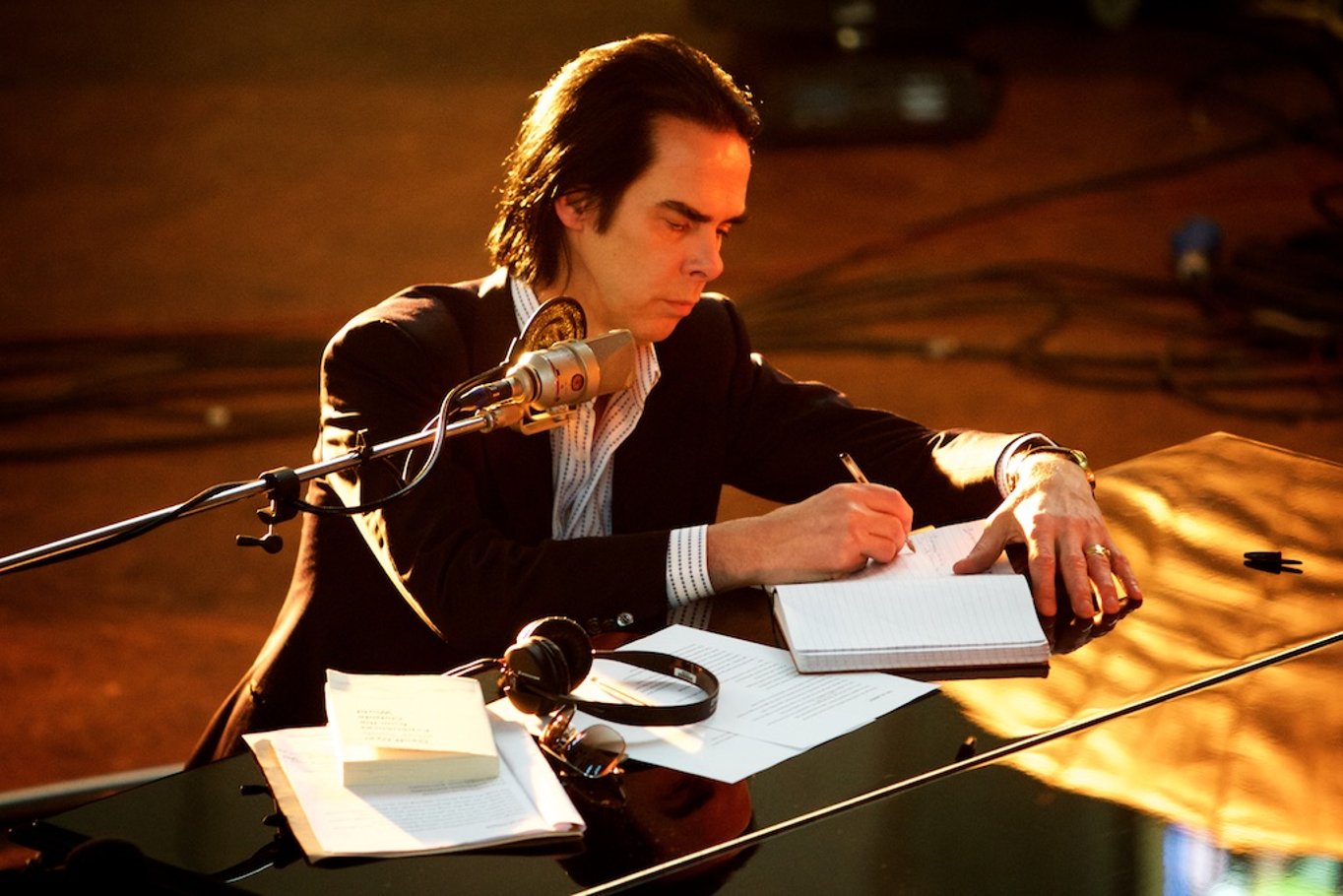
Nick Cave
By: Lars Brandle
For all the folks confidently inserting the word “polymath” in their CVs, they’ve got nothing on Nick Cave.
Nick Cave, the sixty-six-year-old bandleader and serial creator, has both feet on the darker side of the spectrum. Cave is both prolific and one of the most articulate voices in the art world, his works ranging from novels, to film scripts, leading bands, forming new ones, making music for the screen, touring, and keeping a blog, The Red Hand Files, fresh and meaningful. Cave has overcome addiction, and the tragedy of losing two sons, and remains a force of nature.
Raised in Warracknabeal, a wheatbelt town of Victoria, Cave outgrew his hometown, and later, his homeland (Cave and his wife Susie Bick recently sold their property of more than twenty years in Brighton, a seaside town in southern England). In the seventies and eighties, Cave formed The Boys Next Door, The Birthday Party and the Bad Seeds, developing cult followings in the UK., Berlin and elsewhere. By the time he formed Grinderman in 2006, Cave was among the elite. The following year, it was confirmed when the rocker was inducted into the ARIA Hall of Fame.
The United States came late to the party, 2013’s Push The Sky Away becoming his first top forty appearance on the Billboard 200 chart. 2016’s Skeleton Tree, an album that captures Cave’s grief following the accidental death of his teenage son, Arthur, peaking at number twenty-seven.
Great artists are remembered by the songs they unleash into the world. Cave has no shortage of fan favourites, from the tender “Ship Song” and “Into My Arms”; the Murder Ballad “Where the Wild Roses Grow,” a collaboration with Kylie Minogue; the ferocious “Mercy Seat”; dark party anthem “Deanna”; and “Red Right Hand”, which introduced Cave to millions of new fans through its sync to the popular British period crime drama Peaky Blinders.
Cave reminded everyone of his place among the greats when he embarked on a national tour in 2022 with his longtime collaborator and bandmate Warren Ellis in support of Carnage, recorded during the lockdown.

Naomi Watts
By: Kasumi Borczyk
In an age of decadence and extravagance, the art of subtlety often goes unrecognised.
Not so for Naomi Watts. As one of Australia’s proudest exports, she is known for her inimitable talent on the silver screen. With a filmography as diverse as I Heart Huckabees to King Kong to The Ring, Watts is able time and again to generate a fount of emotional intensity from some unknown source within her. In each of her performances, there is a masterclass to be studied in walking the balance beam between restraint and excess and an understanding of the importance that tragedy plays in creative expression. Pain, she says, “is such an important thing in life. I think that as an artist you have to experience suffering”. Watts’ early career was marred by failed auditions and missed opportunities, and while she landed a few significant roles on the small-screen, it wasn’t really until the age of thirty-three that she was cast in her breakout role in David Lynch’s Mulholland Drive. In it, Watts lends an uncanny sensitivity to her character by charting an aspiring actress’s descent into paranoia using little more than facial tics and darting glances. This role cemented her status as an actress with serious chops and the kind of disciplined determinism that makes her one of the greatest actresses of her generation. Shying away from tabloid dramas, Watts reminds us that acting is a craft to be quietly honed outside the brouhaha of manufactured intrigue and gossip. Reminiscent of the starlets of the silent era, Watts’ emotional range lies almost entirely in her facial expressions alone, which betray a fidelity to her craft that feels rarer and rarer to find in an attention economy that privileges the fast chase rather than the slow burn.

Margot Robbie
By: Kasumi Borczyk
Every once in a generation or so there comes along a film star that inspires awe with their innate charisma and undeniable appeal.
Margot Robbie, the face that launched a thousand sexual awakenings, is the kind of woman that makes you wish she would grant you the privilege of ruining your life. We Australians know her, of course, for her appearance as Donna Freedman on Neighbours, but the world was introduced to her as Naomi Lapaglia, the wife of Jordan Belfort in The Wolf of Wall Street. Adopting a flawless Brooklynite accent, Robbie stunned audiences and critics alike with her magnetic screen-presence and has since gone on to star in films such as I, Tonya, Suicide Squad, Once Upon A Time in Hollywood and Babylon. Outside of her acting career, Robbie also co-founded her own production company LuckyChap Entertainment with the express goal of promoting female stories by female storytellers. More recently, of course, she not only played but became Barbie in Greta Gerwig’s biopic of the Mattel doll. The role almost exceeds representation because Barbie herself is a representation — of an ideal, of an ideology. In the film, Robbie lends an unexpected emotional honesty to the live-action remake of a plastic doll, one that would have required her to imagine not only what Barbie was supposed to represent, but also how that representation can be challenged when cast-out into the contingency of the real world. I defy you then, to imagine a more other-worldly actress to play the part. But for all her seductive charms, there’s also something girl-next-doorish — a kind of jocular playfulness. She is, in essence, the archetypical Australian beauty made manifest, as though her very being were invented by the collective fantasy of an entire nation-state.






























